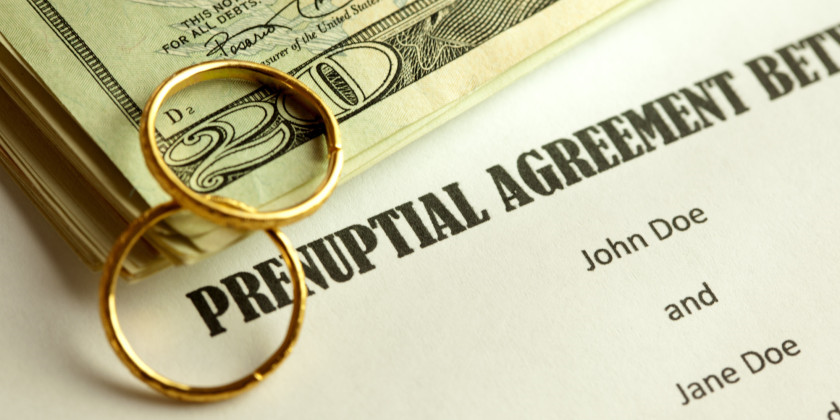So what exactly is a prenuptial agreement? A prenuptial agreement, commonly abbreviated to “Prenupt”, is a contract that allows potential spouses to determine their rights to each other’s property and to their joint property, before getting married. In both Kansas and Missouri, the agreement must be entered into in writing before marriage and goes into effect only when the couple marries.
Your Share of the Augmented Estate in Kansas
The surviving spouse of a decedent in KS has the right to take an elective-share amount of the augmented estate. The augmented estate is property owned by both a deceased person and the surviving spouse, plus any property the deceased spouse gave away shortly before death. The amount a spouse is entitled to is determined by the length of the time the spouse and the decedent were married to each other. The marital property included under the estate can be a home, an automobile, a pension plan, and a military retirement plan. The following chart demonstrates the shares a spouse is entitled to in terms of years of marriage in Kansas, with no prenuptial agreement in place:
Less than 1 Year Supplemental Amount only
1 Year but less than 2 years 3% of Augmented Estate
5 years but less than 6 years 15% of Augmented Estate
10 years but less than 11 years 30% of Augmented Estate
15 years or more 50% of Augmented EstateIn Missouri, if a spouse dies without a will, the surviving spouse can receive the entire intestate estate if there is no surviving issue of decedent. The surviving spouse can also receive the first $20,000 in value of the intestate estate, plus one-half of the balance of the intestate estate, if there are surviving issues, all of who are also issue of the surviving spouse. The surviving spouse is also entitled to one-half of the intestate estate if there are surviving issue, one or more of whom are not issue of the surviving spouse
A Spouse’s Property Rights Outside of the Will
In KS and MO, the decedent’s surviving spouse has certain rights to property of the estate, in addition to their rights under the decedent’s will. These rights include rights to the (1) Exempt Property (2) Family Allowance and (3) Homestead Allowance.
The Exempt Property in Missouri includes:
- The family Bible and other books, one automobile, and fuel for one year.
- All wearing apparel of the family, all household electrical appliances, all household musical and other amusement instruments, all household and kitchen furniture, appliances, utensils and implements.
- Books, documents, furniture, instruments, equipment, breeding stock, seed, grain, and stock up to $7,500 total.
- Personal property exemptions in Kansas include $20,000 for your transportation to and from work (typically car or truck). For people with disabilities a specially designed vehicle has no max exempt limit.
- Furnishings and household equipment, clothing to last one year, and food and fuel to last one year.
- The decedent’s surviving spouse is entitled to a reasonable allowance in money out of the estate for no longer than one year. The allowance may be paid as a lump sum or in periodic installments.
- In setting the amount of the support allowance, the court may consider the previous standard of living of the applicant, the condition of the estate, the income and other assets available to the applicant, and the applicant’s expenses.
- In KS, a reasonable allowance can be no more than $50,000 in money or other real or personal property.
- The property shall not be liable for the payment of any of the decedent’s debts or other demand’s on the decedent’s estate, except liens existing at the time of death.
- Homestead property in Kansas can be any real or personal property, including your home, manufactured home, or mobile home.
- Kansas is one of the few states that have no property value maximum that can be designated under the homestead. There is a maximum acreage amount of 160 acres that limits the property amount that can be saved.
- The homestead is wholly exempt from distribution under any Kansas Law and from payment of the debts of he deceased. The homestead is not exempt from taxes on the property or for the payment of obligations contracted for the purchase of the property.
- The allowance is limited to an amount not exceeding 50% of the value of the estate—exclusive of the exempt property and the family allowance—or $15,000, whichever is less.
- The allowance is the property of the surviving spouse and may consist, in whole or in part, of money or real or personal property.
- The allowance is exempt from all claims against the estate. There are no guidelines to the court as to how the allowance is to be determined.


 RSS Feed
RSS Feed